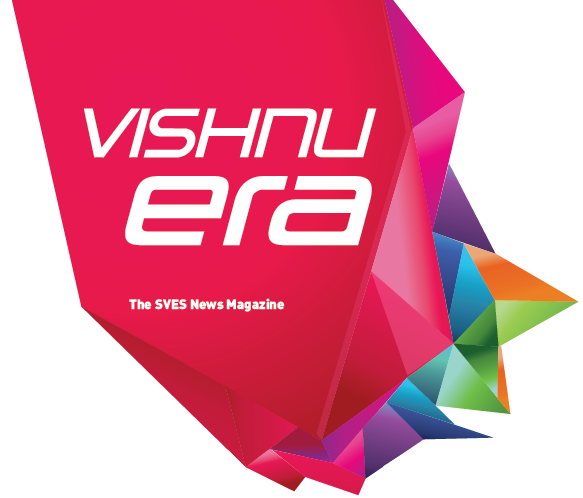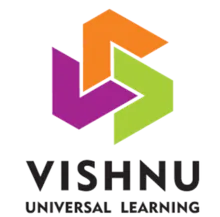The Department was established during the inception of the Institute in the year 2012 with an intake of 60 and increased to 120 from AY 2014-15. Initiated PG Program in VLSI Design from the Academic Year 2024-25. Department of ECE got NBA accreditation in 2018-19 for a period of three years and got extension for one year in 2021 and accredited 2nd time in 2022-23 for a period of three years.
The main objective of the Department is to impart quality education, training and research in various areas of Electronics and Communication Engineering with broad emphasis on design aspects of electronic systems.
Department of ECE offers
B.Tech (Electronics and Communication Engineering) with an intake of 120
M.Tech (VLSI Design) with an intake of 12
Department of ECE has received Three University Gold Medals
- T Ravali (2013-17) received Late Prof. G. Purushotham memorial endowment gold medal for having secured highest marks in Mathematics – I among all branches of B.Tech from all JNTUH constituent and affiliated colleges amongst all graduates for the academic year 2016-17
- Ch Sowmya (2018-22) received two gold medals – University Gold Medal and Pisupatti Supriya Desai endowment gold medal for having Secured First Rank in B.Tech (Electronics and Communication Engineering) from all JNTUH affiliated Colleges amongst all graduates for the academic year 2021-22
Achievements of the Department:
- Received 3rd BEST IETE Student Branch Award by IETE Hyderabad chapter for the year 2013.
- Received Academic Credentialing Award from Mathworks for three consecutive years
- 2021-22, 2022-23 and 2023-24 for adopting MATLAB and Simulink in Curriculum, Projects and Research.
- Successfully Completed Funded Projects worth Rs. (59.87 Lakh) from DST-TIDE, DST – SERB, TEQIP III –JNTUH and Microsoft
- One Patent Grant – A Portable Medicine Identification and Alerting System for Visually Challenged People and Geriatrics (Indian – Utility Patent) with No: 531064
- Four Start-Ups by Faculty, Alumni and Students
- Three MSME Funded Projects each of Rs. 15 Lakh
Faculty
The Department is supported by a fine amalgam of eminent and dynamic faculty members diversified in various domains like communications, Signal Processing, VLSI and Embedded Systems, striving continuously in providing quality education. They are also encouraged to collaborate with faculty members from other disciplines, both within and outside the institute. The alumni who are in the top echelons of industry talk about the academic strength of the department.
Dr Vasu Babu, Professor, ECE listed in Top 2% with 2024 year rank of 414256 with Information and Communication Technologies as main filed and Networking and Telecommunications as sub field released by Elsevier and Stanford University
Laboratories
Well Equipped labs and the infrastructure are regularly upgraded not only to serve the purpose of the curriculum prescribed by JNTUH but also facilitate to carry out innovative projects to challenge the fast changing needs of the society besides undertaking R&D activities in various fields. The Department Technical Association, Electro Elitz, and the professional student chapters IEEE, IETE, ISTE encourage students develop their technical and communication skills.
Industry Collaborations
- Qualcomm Technologies – 5G Certifications & Mentorship in association with Q Cares, Qualcomm
- Synopsys Tool under SARA (Synopsys Academic and Research Alliance)
- MATLAB Chapter in Association with Mathworks
- Drone Technology Training
- Embedded Software Programming in Association with Pi Square Technologies
- HCL Career Shaper
- BFSI Consortium
- Industry Ready Professional Training Program – Veda IIT (University Collaboration)
- Manjeera Digital Systems
The Touchstone of the Department is to augment its teaching and research and adopt modern methodologies to promote more hands on facilities to students through Special
- Assistive Technology Lab
- IoT Maker Space Lab
- Drone Technology Lab
to develop Innovative projects addressing the needs of differently abled people and Societal Issues. Workshops, Industrial Visits, Mentorships, Internships, Guest lectures by Industry and Academic experts are often organized to inject industry oriented thinking, which helps students to take part in Hackathons organized by various reputed agencies
Vision
To emerge as a center of academic and research excellence in Electronics and Communication Engineering and create globally competent women technocrats with a high degree of social consciousness in a holistic learning environment.
Mission
M1: To provide quality education to the students with emphasis on training related to latest technologies as per industrial needs
M2: To impart research culture, professional ethics and moral values to the students by committed and competent faculty striving for excellence.
M3: To inculcate a perceptive alacrity in students to identify real life problems, formulate strategies and evolve into contextually effective solutions.
Program Outcomes (POs)
Program Educational Objectives (PEOs)
After three to six years of graduation, the graduates of this program:
PEO-1: Excel in contemporary problem solving in Electronics and Communication Engineering and the allied fields through the knowledge-base provided by the program.
PEO-2: Demonstrate their technical, communication and leadership skills in professional environment or as entrepreneurs with social responsibility.
PEO-3: Analyze the latest issues and technology growth in the field of Electronics and Communication Engineering and update their knowledge and skills accordingly through continuous learning.
PEO-4: Demonstrate ethical and human values in multicultural and multidisciplinary environments.
Program Specific Outcomes (PSOs)
The graduates of this program will be able to
PSO-1: Provide optimized solutions for digital, signal processing and communication systems.
PSO-2: Develop compact, energy efficient and low cost products to assist the differently abled people.





